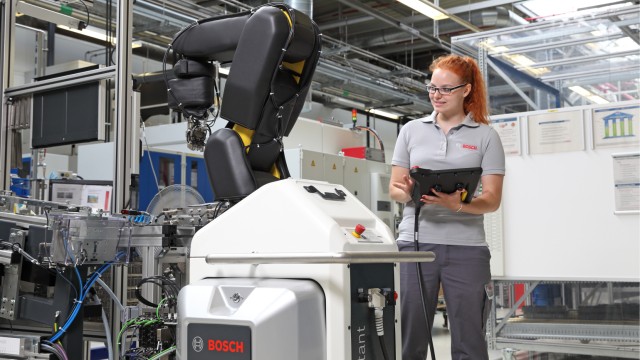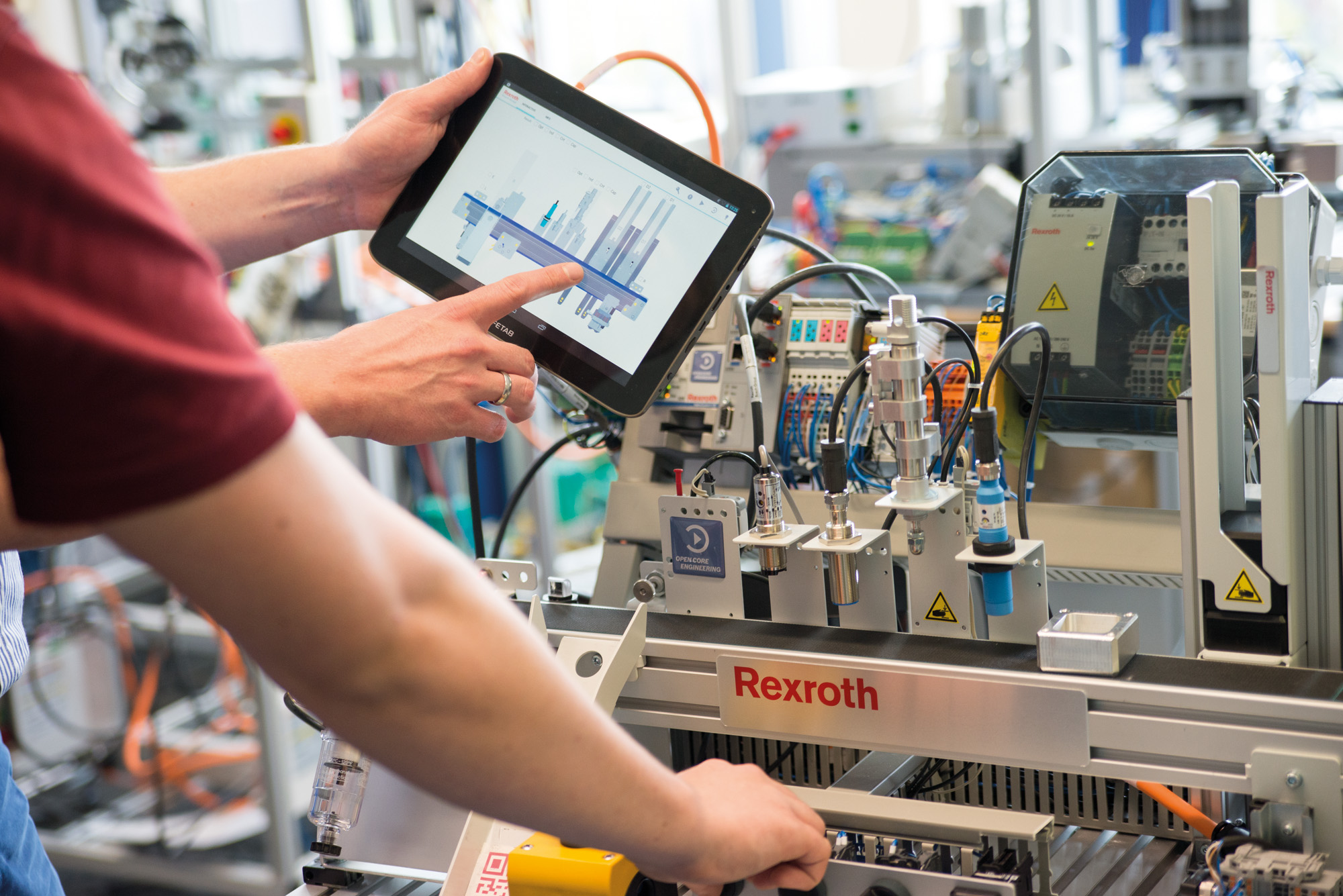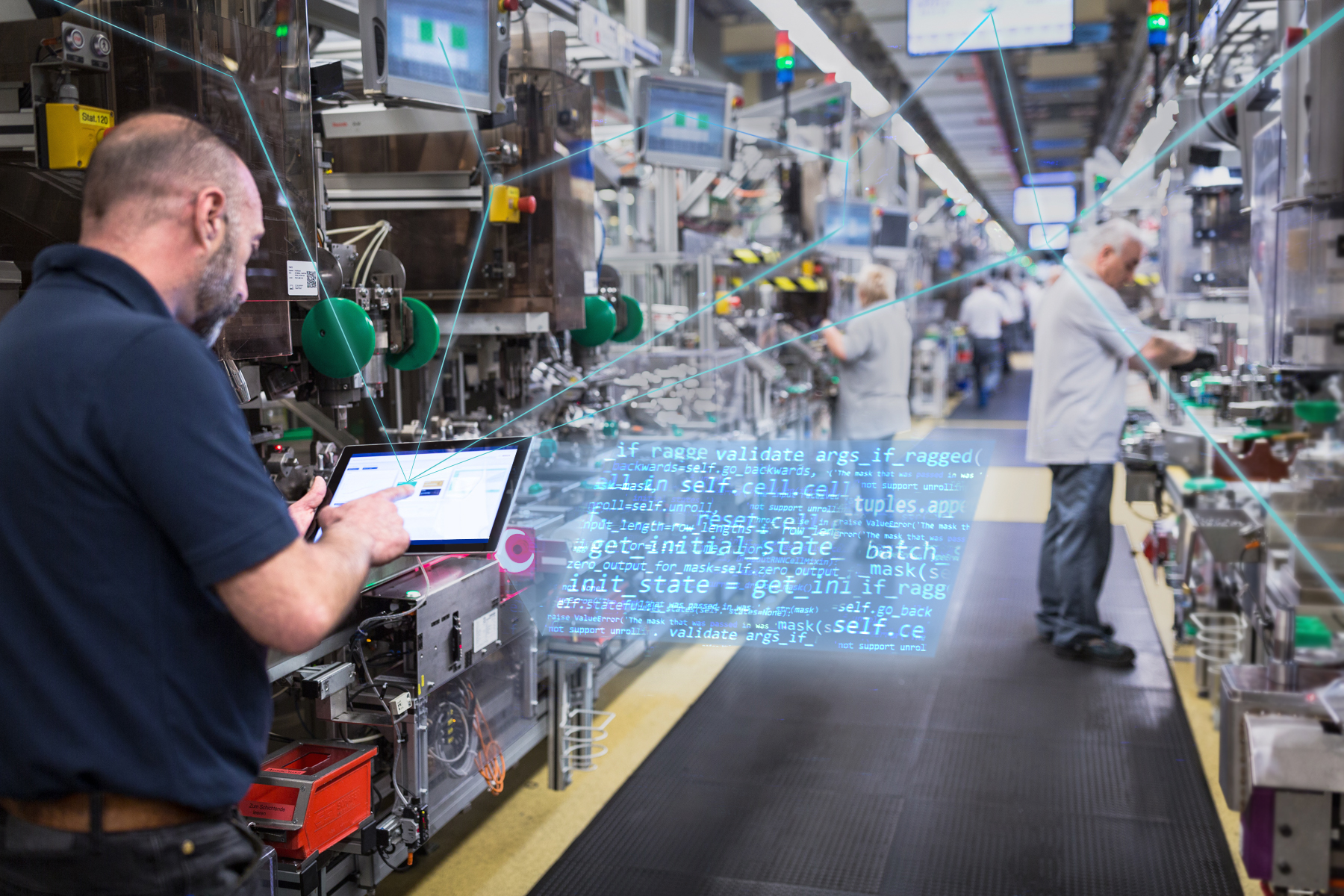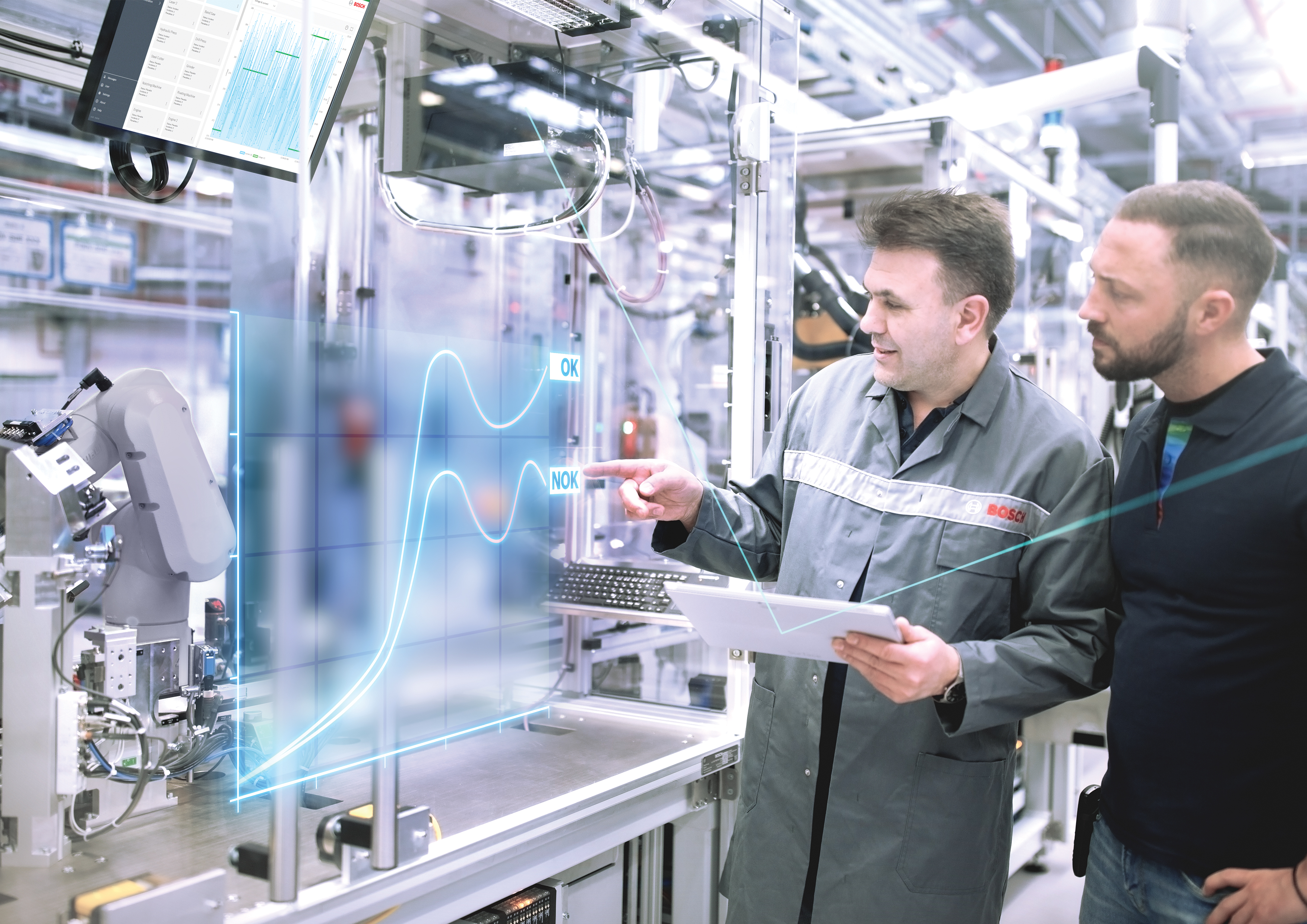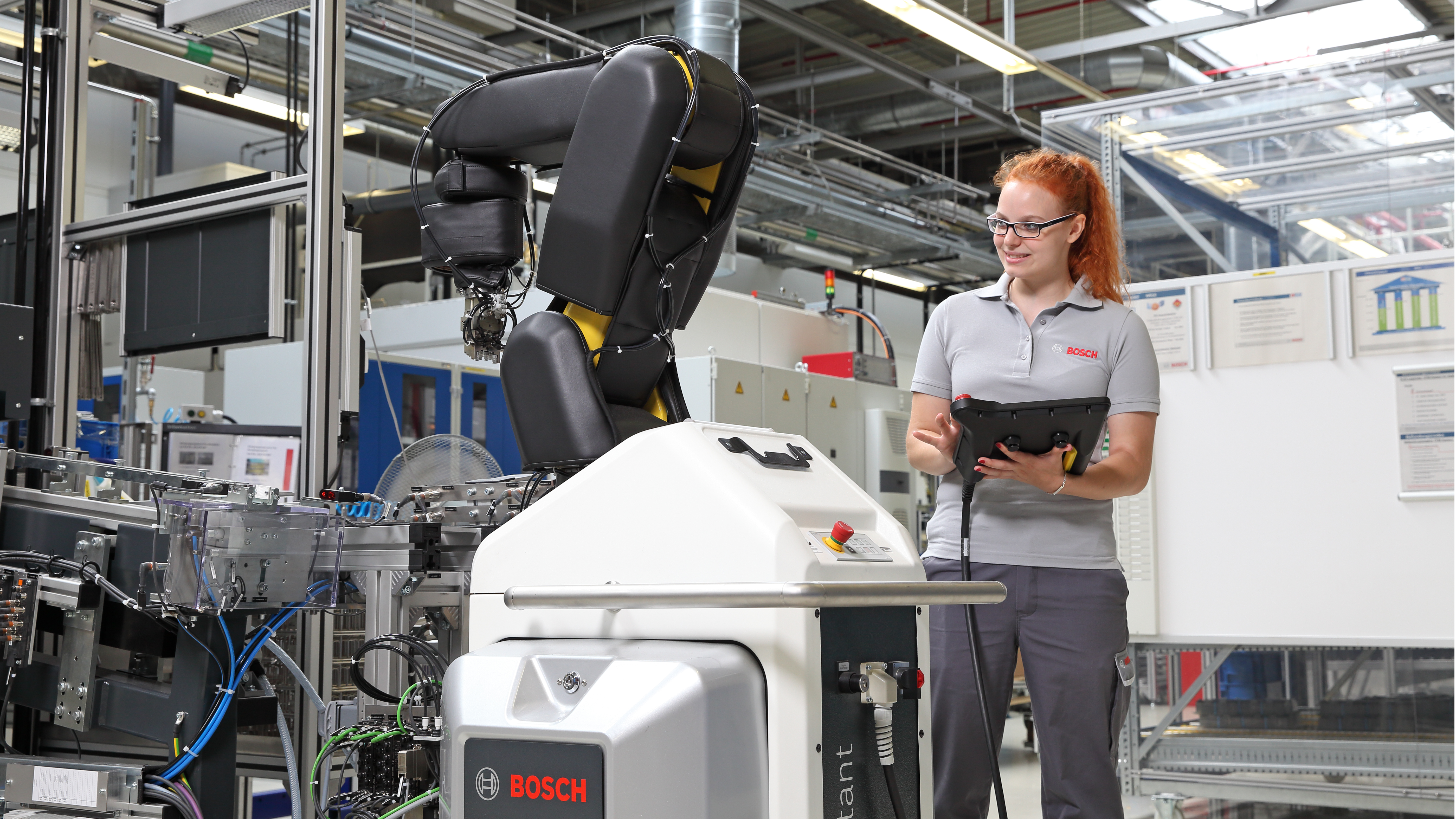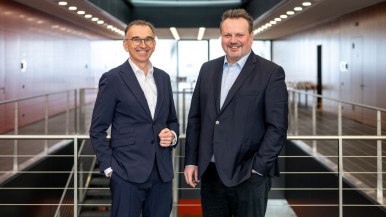Stuttgart, Germany – Bosch is continuing its Industry 4.0 education campaign. “Because Industry 4.0 strengthens the competitiveness of manufacturing sites, it helps safeguard jobs,” says Rolf Najork, the member of the Bosch board of management responsible for industrial technology. At the start of the 2021/2022 training year, Bosch will be inaugurating a new Industry 4.0 training center in Stuttgart-Feuerbach and one at the Bosch Rexroth Customer and Innovation Center in Ulm. New certificate courses initiated by Bosch, such as Industrial Manager of Digital Transformation, will also start in September. After the pilot phase, curricula that Bosch helped develop will be exported internationally to train people as Industry 4.0 specialists and more. In total, Bosch offers more than 100 external training courses for Industry 4.0, which are open to associates and interested parties from other companies. “Our some 240 plants worldwide keep us at the cutting edge. We draw on our experience and develop concepts to make workers fit for Industry 4.0,” says Filiz Albrecht, Bosch board of management member and director of industrial relations at Robert Bosch GmbH. Over the past five years, Bosch has invested more than one billion euros in qualifying and further training its associates. The company is now introducing newly designed Industry 4.0 roles across its plants.
Fact sheet: Bosch readies workers for Industry 4.0
Press release: Ten years of Industry 4.0: Bosch sales reach 4 billion euros
Contact persons for press inquiries:
| Dennis Christmann, Phone: +49 711 811-58178 Twitter: @BoschPresse | Simon Schmitt, Phone: +49 711 811- 6478 Twitter: @5imonSchmitt |
About Bosch
The Bosch Group is a leading global supplier of technology and services. It employs roughly 418,000 associates worldwide (as of December 31, 2024). The company generated sales of 90.3 billion euros in 2024. Its operations are divided into four business sectors: Mobility, Industrial Technology, Consumer Goods, and Energy and Building Technology. With its business activities, the company aims to use technology to help shape universal trends such as automation, electrification, digitalization, connectivity, and an orientation to sustainability. In this context, Bosch’s broad diversification across regions and industries strengthens its innovativeness and robustness. Bosch uses its proven expertise in sensor technology, software, and services to offer customers cross-domain solutions from a single source. It also applies its expertise in connectivity and artificial intelligence in order to develop and manufacture user-friendly, sustainable products. With technology that is “Invented for life,” Bosch wants to help improve quality of life and conserve natural resources. The Bosch Group comprises Robert Bosch GmbH and its roughly 490 subsidiary and regional companies in over 60 countries. Including sales and service partners, Bosch’s global manufacturing, engineering, and sales network covers nearly every country in the world. Bosch’s innovative strength is key to the company’s further development. At 136 locations across the globe, Bosch employs some 87,000 associates in research and development.
The company was set up in Stuttgart in 1886 by Robert Bosch (1861–1942) as “Workshop for Precision Mechanics and Electrical Engineering.” The special ownership structure of Robert Bosch GmbH guarantees the entrepreneurial freedom of the Bosch Group, making it possible for the company to plan over the long term and to undertake significant upfront investments in the safeguarding of its future. Ninety-four percent of the share capital of Robert Bosch GmbH is held by Robert Bosch Stiftung GmbH, a limited liability company with a charitable purpose. The remaining shares are held by Robert Bosch GmbH and by a company owned by the Bosch family. The majority of voting rights are held by Robert Bosch Industrietreuhand KG. It is entrusted with the task of safeguarding the company’s long-term existence and in particular its financial independence – in line with the mission handed down in the will of the company’s founder, Robert Bosch.
Additional information is available online at www.bosch.com, www.bosch-press.com.
